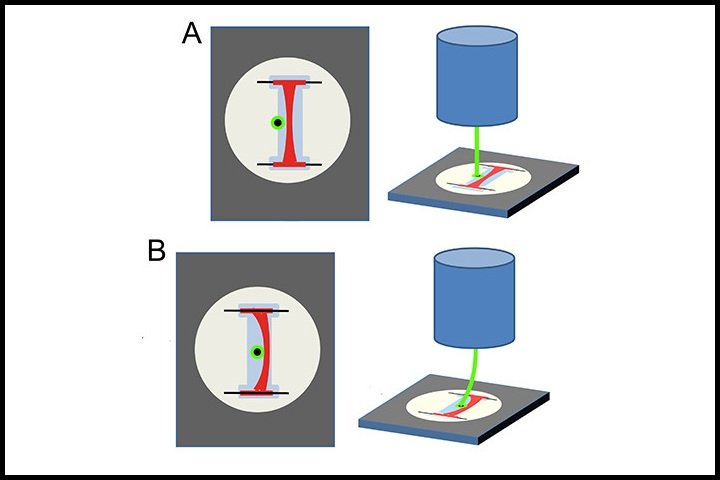Scientists have developed a three dimensional organ-on-a-chip that mimics heart’s amazing biomechanical properties with the goal of understanding why cardiac cells behave the way they do.
The organ-on-a-chip called I-Wire was developed by researchers at Vanderbilt University in the US and this chip not only mimics our heart’s biomechanical properties, but it also allows scientists to grow cardiac cells under controlled, time-varying tension similar to what they experience in living hearts. Further the chip is the first of its kind that obeys Frank-Starling law of the heart. The law, which was discovered by two physiologists in 1918, describes the relationship between the volume of blood filling the heart and the force with which cardiac cells contract.
As described by scientists behind the development, the I-Wire device consists of a thin thread of human cardiac cells 0.014 inches thick stretched between two perpendicular wire anchors. The amount of tension on the fiber can be varied by moving the anchors in and out, and the tension is measured with a flexible probe that pushes against the side of the fiber. This fiber is then supported by wires and a frame in an optically clear well that is filled with liquid medium like that which surrounds cardiac cells in the body. The apparatus is mounted on the stage of a powerful optical microscope that records the fiber’s physical changes. The microscope also acts as a spectroscope that can provide information about the chemical changes taking place in the fiber. A floating microelectrode also measures the cells’ electrical activity.
The team says the I-Wire system can be used to characterize how cardiac cells respond to electrical stimulation and mechanical loads and can be implemented at low cost, small size and low fluid volumes, which make it suitable for screening drugs and toxins. Because of its potential applications, Vanderbilt University has patented the device.
According to Veniamin Sidorov, the research assistant professor at the Vanderbilt Institute for Integrative Biosystems Research and Education (VIIBRE) who led its development, the device faithfully reproduces the response of cardiac cells in a living heart.


